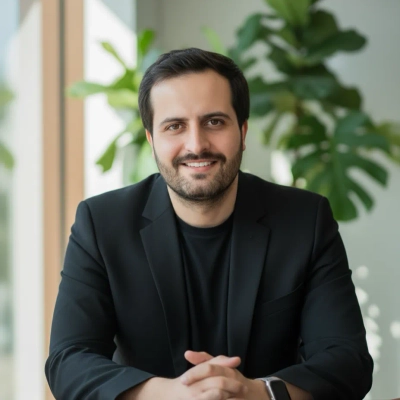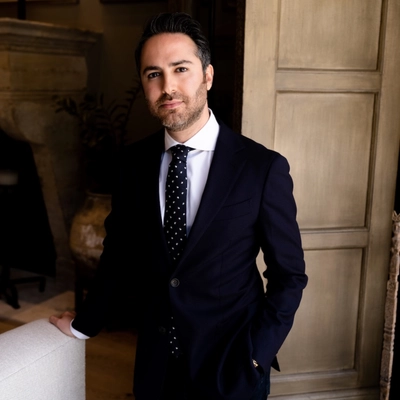How Workplaces Supported Mental Health: Real Stories
Mental health support in the workplace can make the difference between burnout and sustainable success. This article features real stories from professionals across various industries, including insights from managers, supervisors, and leadership teams who implemented meaningful changes. From flexible deadlines and recovery weeks to unplug zones and therapy support, these examples demonstrate practical ways organizations prioritized employee well-being.
- Manager Arranged Paid Leave and Therapy
- Hospital Implemented Mental Health Recovery Week
- Team Closed Office Early for Recovery
- Manager Reduced Workload Without Asking Questions
- Leadership Protected My Peace During Growth
- Team Created Unplug Zone for Recovery
- Colleague Received Sabbatical and Professional Coaching
- Team Built Mental Recharge Days Culture
- Manager Arranged Flexible Deadlines and Counselor
- Company Reassigned Tasks for Operational Break
- Supervisor Suggested Time Off Without Questions
- Leadership Encouraged Long Weekend for Rest
- Company Prioritized Connection Over Productivity
- Management Introduced Recharge Fridays and Wellness
- Management Offered Support Group After Loss
- Leadership Enforced Unplug Rule After Hours
- Manager Showed Care Through Remote Support
Manager Arranged Paid Leave and Therapy
Before coaching, I led copy and content at a SaaS company, and the kindest thing a workplace ever did for my mental health happened there during a season when I was quietly coming apart — caregiving for my mum, living with weekly migraines, and pretending I could outrun it.
My manager noticed before I could admit it. She walked me to a quiet conference room with the blinds half-drawn and said, “Your job is safe. Let’s get you breathing again.”
By the end of that hour, they’d arranged an eight-week paid leave, covered therapy through our insurance, set up a small eldercare stipend, and reassigned my red-flag projects without turning me into a cautionary tale. When I came back, they protected “quiet Wednesdays,” put a hard stop on Slack after 7, and told me the measure of success was steadiness, not heroics.
I cried in the parking lot from relief, then slept through the night for the first time in months.
That care did more than stabilize me; it changed my life. With my nervous system out of survival mode, I could finally hear what I wanted next. I realized I was ready to build the work I now do: repair-focused coaching for people in high-heat roles. My company didn’t punish that truth; they helped me design a gentle off-ramp, kept me on a short retainer, and introduced me to my first two clients.
I left proud, not burnt, and I carry their model forward: tell people they’re safe, reduce the noise, fund the support, and make a dignified path — back in or forward on — possible. It felt like being seen all the way to the bone, and it gave me the courage to start again.

Hospital Implemented Mental Health Recovery Week
Yes—one memorable example that stands out is when my workplace implemented a “mental health recovery week” during a particularly intense period of patient demand and staff burnout. Instead of simply offering standard wellness webinars or emails about self-care—which often feel tokenistic—they took tangible, compassionate action. Leadership temporarily reduced non-urgent clinical workloads, provided optional group debrief sessions led by mental health professionals, and encouraged staff to take the time to truly rest, reflect, or seek personal therapy if needed—without guilt or penalties.
What made this initiative so impactful wasn’t just the time off, but the message behind it: that mental health was not secondary to patient care—it was a form of patient care. The hospital administration acknowledged openly that sustained compassion requires replenishment, and that “burning out for the cause” helps no one. I remember attending one of the peer support sessions where colleagues shared emotional exhaustion and grief we had all silently carried. That collective vulnerability, in a space free of hierarchy or performance pressure, was profoundly healing.
Personally, the experience shifted how I viewed organizational well-being. I realized that genuine support doesn’t come from grand gestures—it comes from psychological safety, the sense that you can express distress without fear of judgment or professional repercussions. Knowing that my leaders valued mental recovery as much as productivity fostered immense loyalty and renewed motivation.
When I returned to work, I felt more centered, more connected to my team, and more confident in setting my own boundaries. It also changed how I now supervise others—I prioritize check-ins not just about workload, but emotional energy.
That week taught me that when a workplace truly invests in mental health, it creates not only healthier employees but a stronger, more compassionate workforce. It’s a reminder that care must flow in both directions—from us to patients, and from the organization back to us.

Team Closed Office Early for Recovery
When I first started PCI Pest Control, I didn’t think much about mental health—I was focused on building the business and keeping it afloat. A few years in, the pressure started catching up to me. I was working long hours, taking calls late at night, and barely seeing my family. My team noticed before I did. One Friday, they surprised me by closing the office early and telling me to take the day off. They said, “We’ve got this, Matt.” It wasn’t a big gesture on paper, but it hit me hard because it showed me that they cared not just about the company, but about me as a person. That small act gave me space to breathe and reflect on how I was running things.
That experience changed how I lead. I realized that if I wanted a healthy business, I needed to create a healthy environment for everyone—including myself. Since then, I’ve encouraged open conversations about burnout and made it clear that asking for time off when you need it isn’t a weakness. It reminded me that leadership isn’t just about pushing harder; it’s about setting an example of balance and trust. That one afternoon off didn’t just help my mental health—it reshaped how our whole team supports one another.

Manager Reduced Workload Without Asking Questions
Discussions about workplace mental health often center on formal benefits—therapy apps, wellness stipends, and flexible time off. These are valuable resources, but the most meaningful support I’ve experienced had little to do with a corporate program. It was far quieter and more personal, rooted in the daily behavior of a leader who understood that genuine support isn’t always about adding a new resource, but about subtracting an existing pressure.
The most profound way a workplace can go “above and beyond” is by creating psychological space for an employee to operate at less than one hundred percent. This isn’t about lowering standards indefinitely, but about offering temporary, unconditional relief from the unspoken expectation of peak performance. It’s the manager who sees you’re struggling and, instead of just asking what they can do, proactively takes something off your plate. This act communicates a powerful message: your well-being matters more than your immediate output, and you are trusted to return to form when you are able.
I once went through a difficult personal period where my focus was completely fractured. My manager, sensing this without a direct conversation, simply pulled me aside and said, “For the next few weeks, I only need you to focus on your top two priorities. Let everything else go for now; the team and I will absorb it.” He didn’t ask for a reason or a timeline. The gesture gave me something no app or wellness seminar could provide: permission to be human. It makes you question whether true support is found in a catalog of benefits or in the quiet grace of lowered expectations.

Leadership Protected My Peace During Growth
“The most powerful thing a company can do for its people is protect their peace even when the pressure is high.”
There was a period a few years ago when we were going through an intense growth phase—long hours, constant travel, and major strategic decisions stacking up. During that time, my board and leadership team noticed I was burning out before I did. They encouraged me to take a full week off—no emails, no calls—just time to disconnect and reset. What truly stood out was how they didn’t just allow it; they protected that time, ensuring operations ran smoothly so I could return with clarity and focus. It reminded me that leadership isn’t just about driving results—it’s about creating a culture where well-being is prioritized at every level. That experience changed how I lead today; I actively promote mental breaks and balance because I’ve seen firsthand how much stronger we become when we take care of ourselves.

Team Created Unplug Zone for Recovery
There was a moment when the team demonstrated genuine care for mental well-being that still stands out. During a particularly intense product launch cycle, it became clear that the usual long hours and pressure were eroding morale. At that point, a decision was made to bring in an external counsellor for a one-day onsite workshop, followed by weekly drop-in sessions for anyone who needed to talk. Alongside that, a silent “unplug zone” was created in the office—complete with comfortable seating, soft lighting, and no digital devices allowed.
The effect was profound: people used that space without hesitation, conversations shifted from “I’m surviving” to “I’m supported,” and team energy genuinely rebounded. The act of pausing to say “this matters” transformed the atmosphere.

Colleague Received Sabbatical and Professional Coaching
A time came when the team at Invensis Technologies truly stood up for mental health in a very tangible way. During a particularly intense project phase, one colleague began showing signs of burnout — fatigue, withdrawal from discussions, and a drop in enthusiasm. Instead of seeing this as “just part of the job,” the leadership team stepped in with a different mindset.
A two-hour check-in was scheduled (outside of the usual daily stand-up) with the colleague to listen — really listen — without any agenda. Afterwards, a short sabbatical was offered: three days off, fully paid, and a follow-up plan was created for phased re-entry. To support the transition, a professional coach was brought in for one session, and the team reduced the workload (just for that week) so the meeting velocity could stay modest while recovery happened.
That series of actions did more than stop things from getting worse: it sent a strong message that being human matters. The colleague returned feeling seen and supported rather than like a problem to be managed. The team got reinvigorated, morale improved, and a culture of open conversation about mental wellbeing became stronger. It felt respectful, proactive, and genuine.
Team Built Mental Recharge Days Culture
I’ve always believed that mental health isn’t a luxury topic—it’s foundational to building anything sustainable. Early in my career, I learned that lesson the hard way. During one particularly intense growth phase, I was caught in that startup founder’s trap of thinking I had to carry every fire myself. The long nights, constant decisions, and the pressure to scale started taking a quiet toll. I wasn’t burned out yet, but I was heading straight for it.
What changed everything was the way my team responded when I finally admitted I needed to step back for a bit. I remember walking into a meeting and saying, half-jokingly, that I felt like I was running on caffeine and adrenaline. Instead of brushing it off, one of my team members suggested we implement “mental recharge days”—unstructured time each quarter where no one was expected to be “on.” It wasn’t just a policy shift; it was a mindset shift.
We built it into our culture. No Slack messages, no subtle guilt for logging off, just a genuine pause. I took that first recharge day myself, went completely offline, and realized how much clarity I’d been missing. When I returned, I made better decisions because I wasn’t running on fumes. It reminded me that leadership isn’t about endurance—it’s about awareness and balance.
The ripple effect was powerful. Productivity didn’t drop; it actually improved. People felt trusted to manage their energy, not just their time. I began seeing more creativity in our brainstorming sessions, more patience in our problem-solving, and a noticeable reduction in burnout signs.
That experience fundamentally changed how I lead. Supporting mental health doesn’t always require grand gestures—it’s about creating a culture where people, including founders, can acknowledge when they need to slow down without fear of judgment. For me, it was a humbling reminder that even in the pursuit of growth, sustainability starts with humanity.
Manager Arranged Flexible Deadlines and Counselor
During a particularly stressful project, my manager noticed the team’s burnout and arranged for flexible deadlines, optional check-ins, and access to a counselor for anyone who wanted it. They also encouraged small daily breaks and mindfulness exercises during meetings. The gesture made a huge difference—I felt seen and valued beyond just productivity. It reinforced trust in leadership and showed that the company genuinely cares about wellbeing, not just output. Knowing that support was available created space to focus, recover, and perform better without guilt.

Company Reassigned Tasks for Operational Break
My workplace went above and beyond to support my mental health when I was facing severe structural fatigue that compromised my focus and decision-making after a prolonged, high-pressure storm season. The company recognized that treating mental strain is necessary structural maintenance, not an abstract benefit. The conflict was the trade-off: traditional management would demand I push through, which creates a massive structural failure risk on the job site.
What they did was implement the “Mandatory Hands-on Operational Break.” They immediately pulled me off all high-stakes estimating and heavy-duty logistical management tasks for a full two weeks. However, they didn’t send me home to rest abstractly. They reassigned me to the quiet, organized work of warehouse structural optimization—auditing inventory, organizing specialized tools, and meticulously reviewing safety logs. This allowed me to continue working, but only on tasks that required hands-on structural discipline without the immense pressure of external client deadlines.
This made me feel like an essential structural asset. The action proved that the company valued my long-term structural integrity more than my short-term billable hours. They didn’t just offer abstract emotional support; they provided a concrete, verifiable structural solution that allowed me to repair my focus and return to full capacity without fear of judgment. The best way a workplace supports mental health is by being an organization that is committed to a simple, hands-on solution that prioritizes scheduled structural maintenance of its human capital over all other incentives.
Supervisor Suggested Time Off Without Questions
I worked for another company where long hours and constant pressure were just part of the job. I hit a point where the stress was affecting my focus and motivation, but I didn’t feel comfortable saying anything at first. One day, after noticing I seemed worn down, my supervisor pulled me aside—not to talk about performance, but to check in personally. He suggested I take a few days off, no questions asked, and reassured me that stepping back wouldn’t hurt my standing with the company. That simple gesture of understanding meant a lot. It showed me that leadership isn’t just about output—it’s about paying attention to people.
That experience shaped how I approach my own team today. At Pest Pros, I make sure everyone knows it’s okay to ask for a break or talk things through before burnout sets in. We’ve built a culture where communication comes first, and I try to model that by being transparent about taking my own downtime when needed. Knowing how much that small act of empathy helped me years ago drives me to create a workplace where people feel supported, not just managed. It reminded me that when employees are cared for, their performance naturally follows.
Leadership Encouraged Long Weekend for Rest
During a particularly demanding season, when back-to-back closings and constant calls started taking a toll, leadership noticed the burnout before I even said anything. Instead of pushing through, they encouraged everyone to take a long weekend—no emails, no check-ins, just rest. They also brought in a local counselor for an optional group session about managing stress in high-pressure environments. It wasn’t formal or forced; it felt like genuine care. That moment changed how I saw our workplace. It proved that productivity doesn’t have to come at the expense of well-being. Knowing your team values your mental health builds a different kind of loyalty—it makes you want to give your best because you know they’ve got your back.

Company Prioritized Connection Over Productivity
One moment that stands out was during the early pandemic when live events were completely shut down and the future of our industry felt uncertain. At Event Staff, leadership went beyond just operational adjustments—they checked in on people directly and created space for open dialogue, even if no one had clear answers. We held optional virtual check-ins that weren’t about productivity, just connection. That openness made a big difference. It reminded everyone that the company culture wasn’t built just for busy seasons, but to support the people behind it. Feeling seen during a time of uncertainty didn’t just boost morale; it reinforced loyalty that’s still there today.

Management Introduced Recharge Fridays and Wellness
At one of my previous workplaces, management made a meaningful effort to support our mental health after noticing signs of burnout among the team. Instead of addressing it superficially, they brought in a wellness consultant to host workshops on stress management and mindfulness. They also introduced “Recharge Fridays,” where employees could log off early if their workload was complete, encouraging a healthier work-life balance. What stood out most was how leadership modeled the behavior; they actually took breaks themselves and spoke openly about prioritizing mental well-being, which made it feel genuine. They also offered free access to online counseling services and encouraged employees to use personal days without guilt. This approach made me feel valued beyond just my productivity; it showed that the company cared about the people behind the work. The result was a noticeable boost in morale and trust within the team. Personally, it helped me feel more comfortable communicating when I needed help and ultimately made me more loyal to the organization because I felt truly supported.

Management Offered Support Group After Loss
When I was an attending physician at my first job after fellowship, there was a very fragile patient that I had been taking care of psychiatrically who was going through cancer treatment. She was an incredible soul with a life filled with ups and downs and resilience. She had terminal cancer and unfortunately passed from complications of her illness.
After receiving the news, I began the process of mourning her loss, and since management knew that she was a patient that I had been caring for very closely, providing both therapy and medication management, they offered me access to a support group and allocated 2 hours of discussion with my colleagues on a weekly basis for 4 weeks. They also offered to give me a day off. However, I decided to come back to work, as it would give me the greatest sense of purpose to continue giving back.

Leadership Enforced Unplug Rule After Hours
The best mental health support I ever received didn’t come from a company I worked for but from the one I built. A year ago, after months of relentless growth pressure, my leadership team called me out for burning out. Instead of ignoring it, they enforced a company-wide “Unplug Rule”: no Slack, no emails, no client calls after 6 PM. That same quarter, we ran a project for a luxury home fashion eCommerce client and, despite working fewer hours, saw a 64% increase in organic traffic through focused, high-quality link-building. That success made me realize that clarity, not chaos, drives performance.
The experience taught me that mental health support isn’t about corporate slogans or apps—it’s about creating boundaries that allow creativity to breathe. I used to glorify constant hustle, but now, I see that the smartest business decision I ever made was to slow down. It made me a better leader, and it made Get Me Links a better company.
Manager Showed Care Through Remote Support
Even though my workplace is all-remote and I’ve never met my manager in person, the company went above and beyond to support my mental health during my hospitalization and recovery from a near-fatal reaction to contracting COVID in late 2023.
First and foremost, my manager checked in daily with my husband while I was in the hospital and with me when I returned home. Each time, she emphasized that my focus should be on healing and not to worry about work being completed. She consistently showed care, concern, and patience, and was more than willing to be flexible regarding the transition back to my normal workload.
I also appreciated her thoughtful gesture of sending me a big and beautiful Edible Arrangement with a get-well card on behalf of the company, as she recalled a chat we had about mailed gifts, and I noted that one was one of my favorites! Her efforts made me feel appreciated, and lowered my stress level so that I could better focus on getting better.






